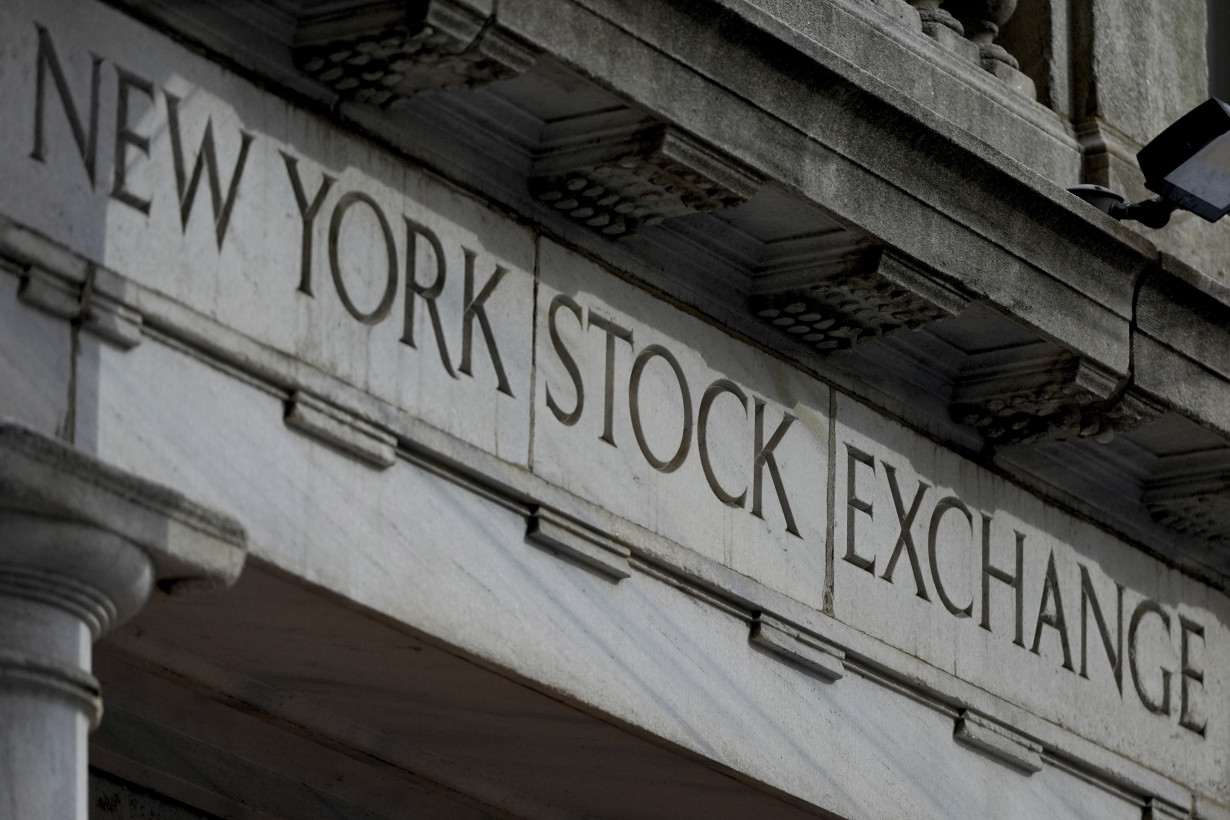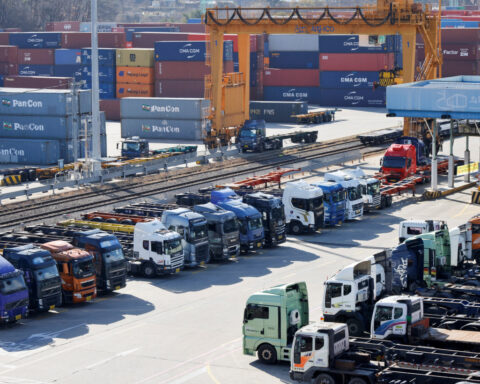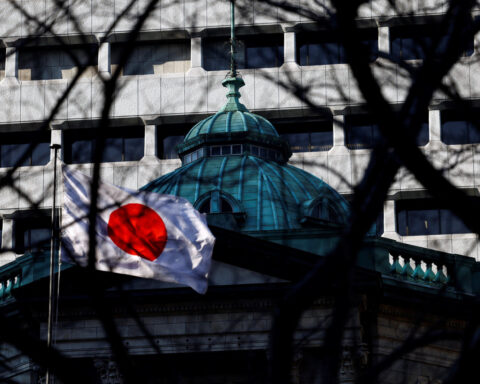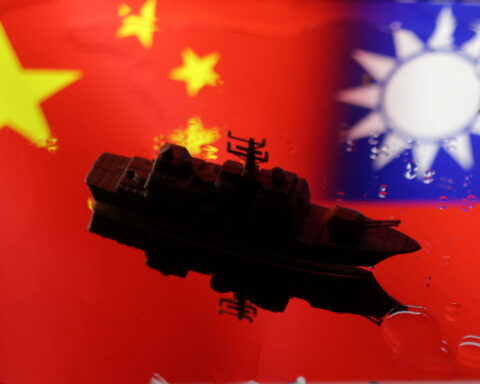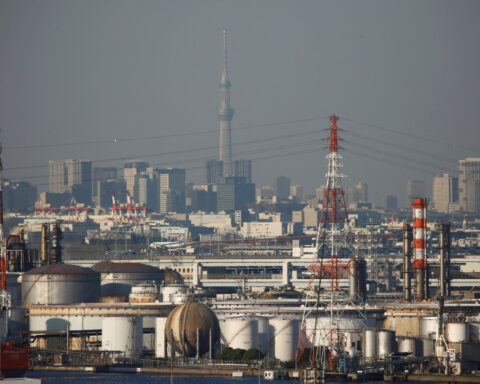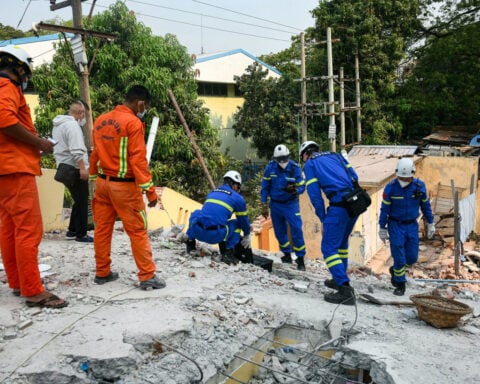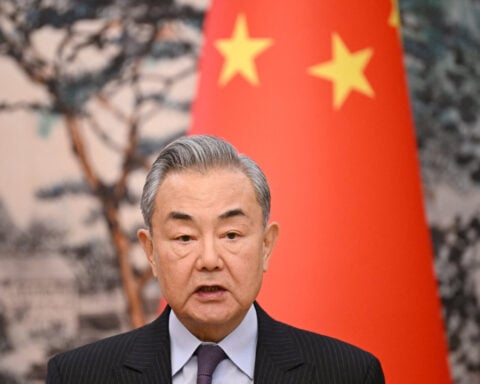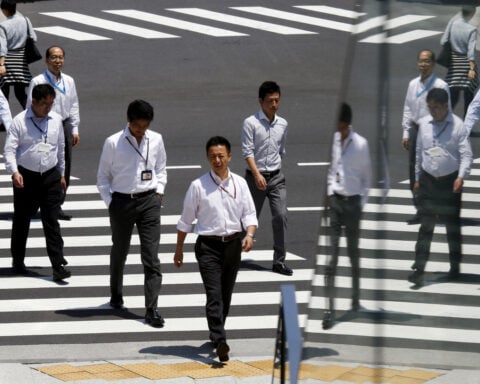NEW YORK (AP) — Another wipeout walloped Wall Street Friday. Worries are building about a potentially toxic mix of worsening inflation and a U.S. economy slowing because of households afraid to spend due to the global trade war.
The S&P 500 dropped 2% for one of its worst days in the last two years. It thudded to its fifth losing week in the last six after wiping out what had been a big gain to start the week.
The Dow Jones Industrial Average sank 715 points, or 1.7%, and the Nasdaq composite fell 2.7%.
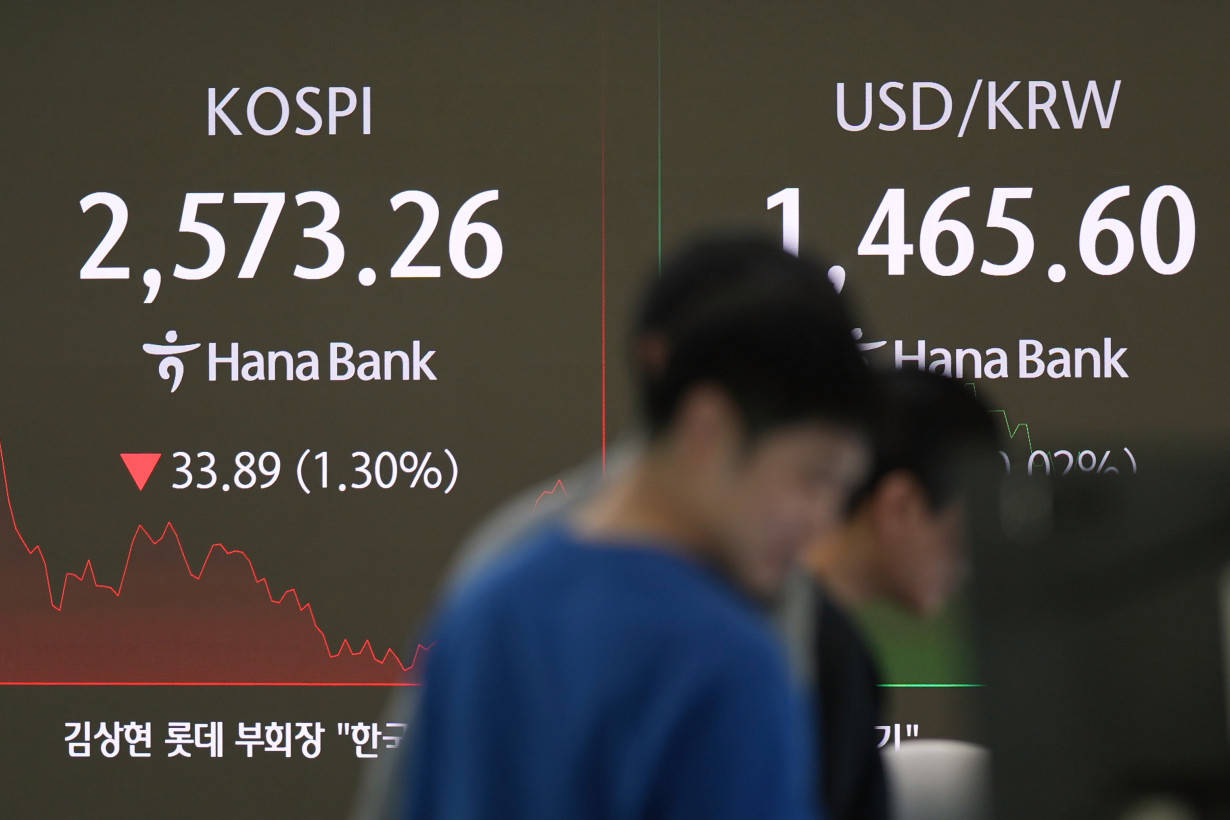
Lululemon Athletica led the market lower with a drop of 14.2%, even though the seller of athletic apparel reported a stronger profit for the latest quarter than analysts expected. It warned that its revenue growth may slow this upcoming year, in part because “consumers are spending less due to increased concerns about inflation and the economy,” said CEO Calvin McDonald.
Oxford Industries, the company behind the Tommy Bahama and Lilly Pulitzer brands, likewise reported stronger results for the latest quarter than expected but still saw its stock fall 5.7%. CEO Tom Chubb said it saw a “deterioration in consumer sentiment that also weighed on demand” beginning in January, which accelerated into February.
They’re discouraging data points when one of the main worries hitting Wall Street is that President Donald Trump’s escalating tariffs may cause U.S. households and businesses to freeze their spending. Even if the tariffs end up being less painful than feared, all the uncertainty may filter into changed behaviors that hurt the economy.
A report on Friday showed all types of U.S. consumers are getting more pessimistic about their future finances. Two out of three expect unemployment to worsen in the year ahead, according to a survey by the University of Michigan. That’s the highest reading since 2009, and it raises worries about a job market that’s been a linchpin keeping the U.S. economy solid.
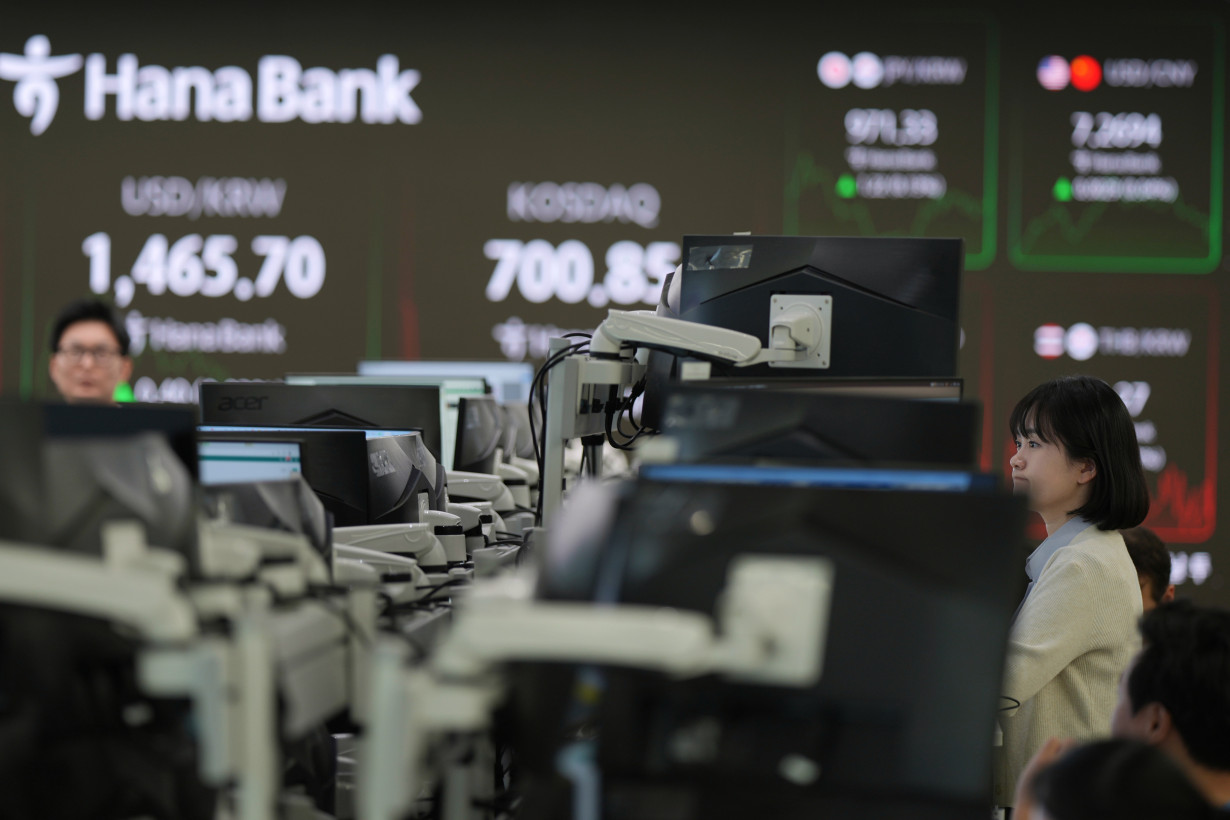
A separate report also raised concerns after it showed a widely followed, underlying measure of inflation was a touch worse last month than economists expected. It followed reports on other measures of inflation for February, but this is the one the Federal Reserve pays the most attention to as it decides what to do with interest rates.
The report also showed that an underlying measure of how much income Americans are making, which excludes government social benefits and some other items, “has been treading water for the last three months,” said Brian Jacobsen, chief economist at Annex Wealth Management.
“Households aren’t in a good place to absorb a little tariff pain,” he said. “The Fed isn’t likely to run to the rescue either as inflation moved up more than expected in February.”
The Fed could return to cutting interest rates, like it was doing late last year, in order to give the economy and financial markets a boost. But such cuts would also push upward on inflation, which has been sticking above the Fed’s 2% target.
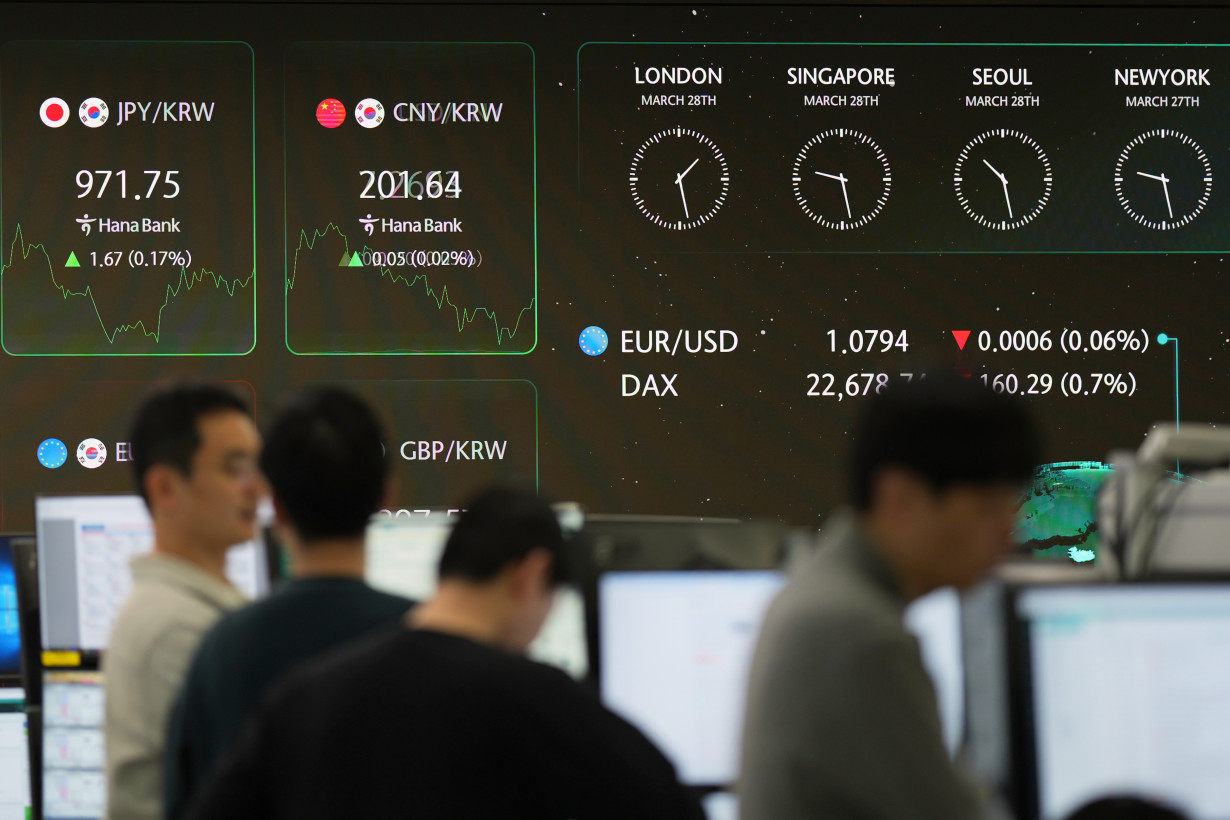
The economy and job market have been holding up so far, but if they were to weaken while inflation stays high, it would produce a worst-case scenario called “stagflation.” Policy makers in Washington have few good tools to fix it.
Some of Wall Street’s sharpest losses on Friday hit companies that need customers feeling confident enough to spend, and not just on yoga wear or beach clothes. Delta Air Lines lost 5%. Casino operator Caesars Entertainment dropped 5%. Domino’s Pizza sank 5.1%.
The heaviest weights on the market were Apple, Microsoft and other Big Tech stocks, whose massive sizes give their movements more sway over indexes. They and other stocks that had gotten caught up in the frenzy around artificial-intelligence technology have been among the hardest hit in Wall Street’s recent sell-off.
Their prices had shot up so much more quickly than their already fast-growing revenues and profits that critics said they looked too expensive. CoreWeave, whose cloud platform helps customers manage complex AI infrastructure, was flat in its first day of trading on the Nasdaq.
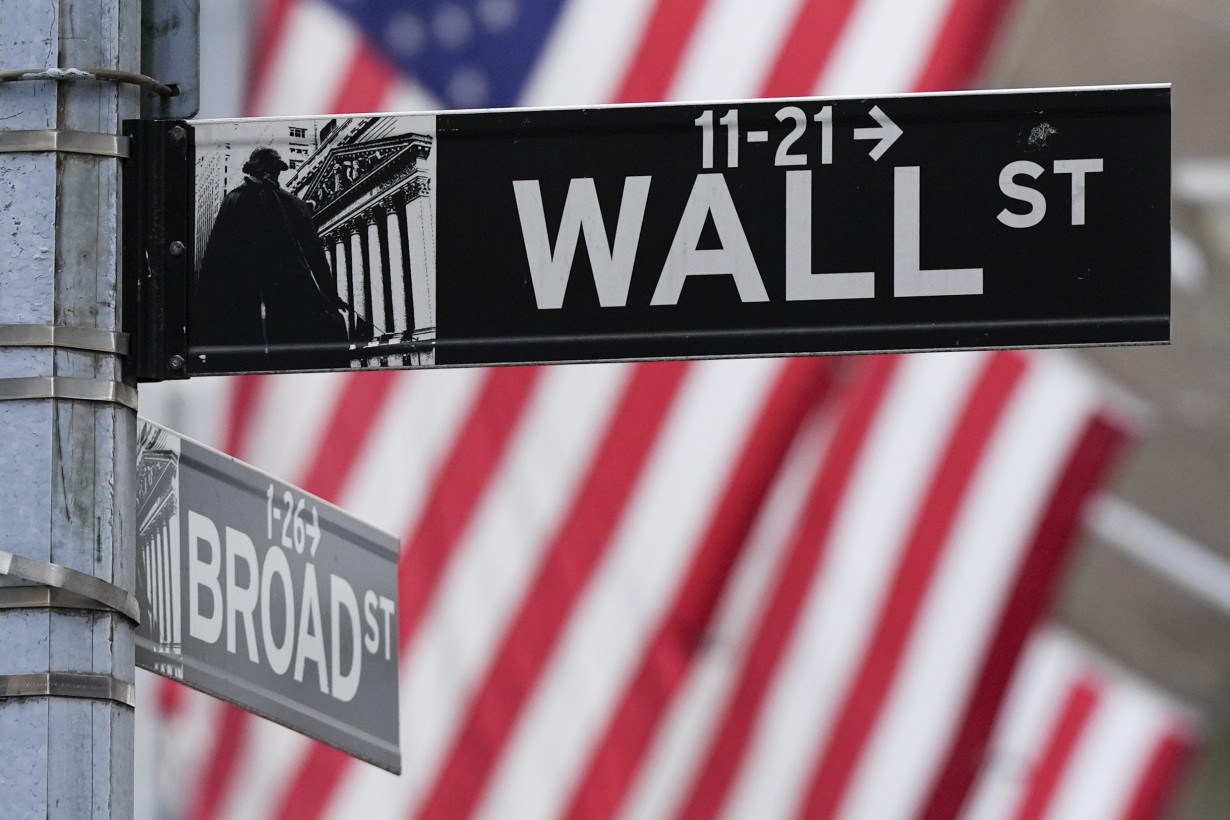
On the flip side, among the relatively few rising stocks on Wall Street were those that can make money almost regardless of what the economy does, such as utilities. American Water Works rose 2.2%.
All told, the S&P 500 fell 112.37 points to 5,580.94. The Dow Jones Industrial Average dropped 715.80 to 41,583.90, and the Nasdaq composite lost 481.04 to 17,322.99.
Stock markets worldwide will likely remain shaky as an April 2 deadline approaches for more tariffs. That’s what Trump has called “Liberation Day,” when he will roll out tariffs tailored to each of the United States’ trading partners.
In stock markets abroad, indexes fell sharply in Japan and South Korea as automakers felt more pressure following Trump’s announcement that he plans to impose 25% tariffs on auto imports. Hyundai Motor fell 2.6% in Seoul, while Honda Motor fell 2.6%, and Toyota Motor sank 2.8% in Tokyo.
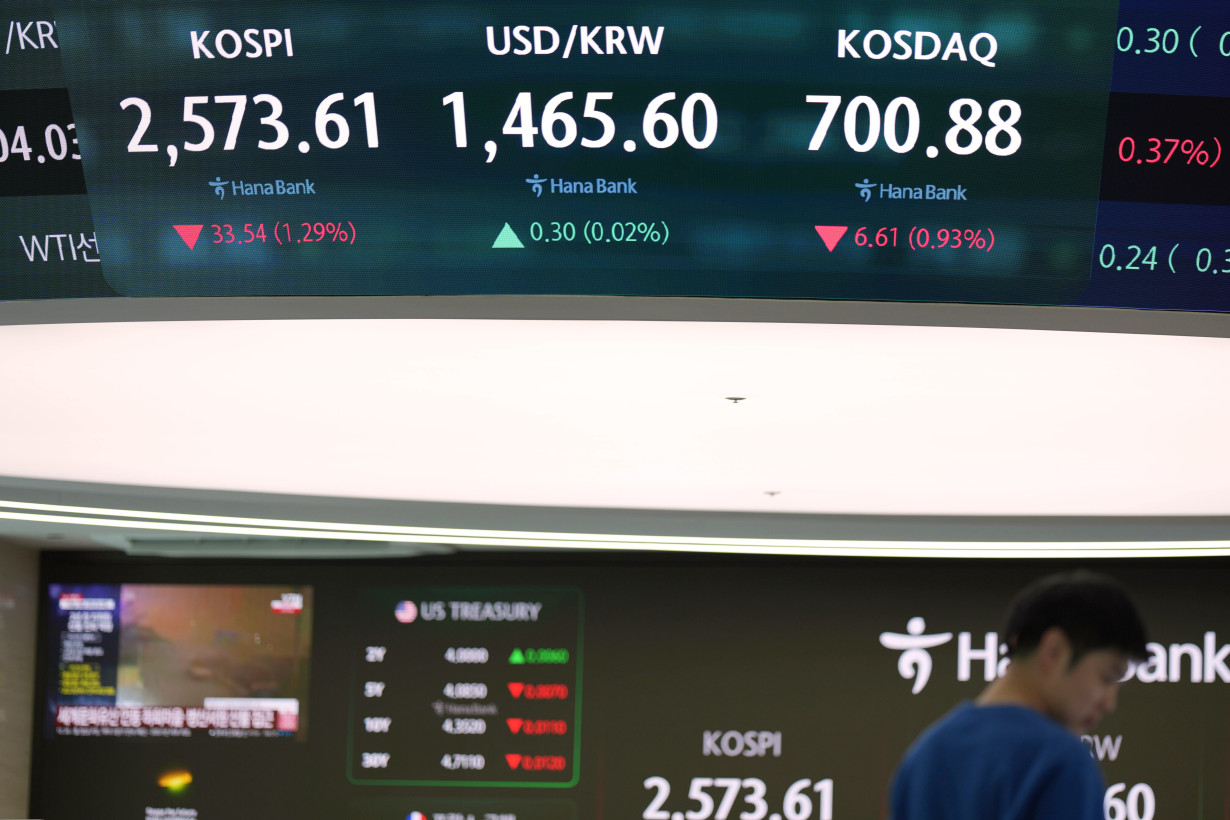
Thailand’s SET lost 1% after a powerful earthquake centered in Myanmar rattled the region, causing the prime minister to declare a state of emergency for the capital, Bangkok.
In the bond market, the yield on the 10-year Treasury tumbled to 4.25% from 4.38% late Thursday. It tends to fall when expectations for either U.S. economic growth or inflation are on the wane.
___
AP Writers Jiang Junzhe and Matt Ott contributed.

 Trump has begun another trade war. Here's a timeline of how we got here
Trump has begun another trade war. Here's a timeline of how we got here
 Canada's leader laments lost friendship with US in town that sheltered stranded Americans after 9/11
Canada's leader laments lost friendship with US in town that sheltered stranded Americans after 9/11
 Chinese EV giant BYD's fourth-quarter profit leaps 73%
Chinese EV giant BYD's fourth-quarter profit leaps 73%
 You're an American in another land? Prepare to talk about the why and how of Trump 2.0
You're an American in another land? Prepare to talk about the why and how of Trump 2.0
 Chalk talk: Star power, top teams and No. 5 seeds headline the women's March Madness Sweet 16
Chalk talk: Star power, top teams and No. 5 seeds headline the women's March Madness Sweet 16
 Purdue returns to Sweet 16 with 76-62 win over McNeese in March Madness
Purdue returns to Sweet 16 with 76-62 win over McNeese in March Madness
